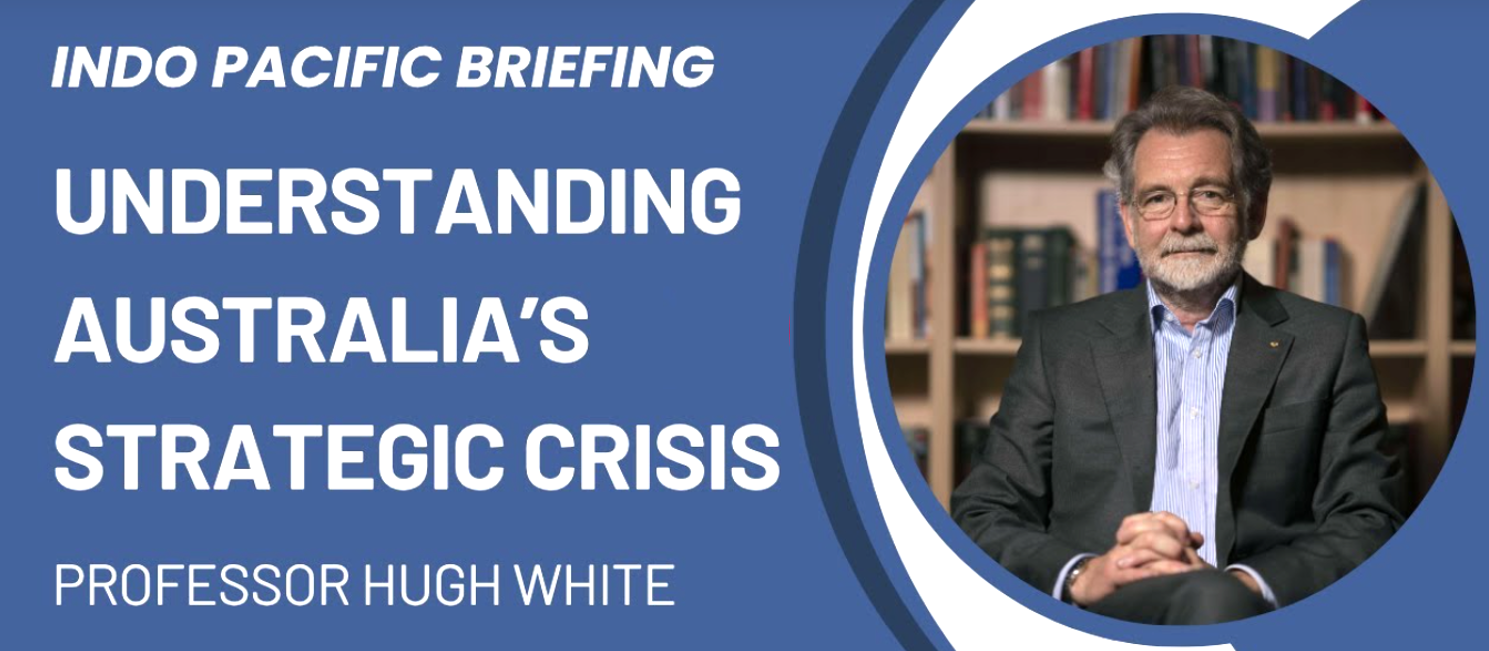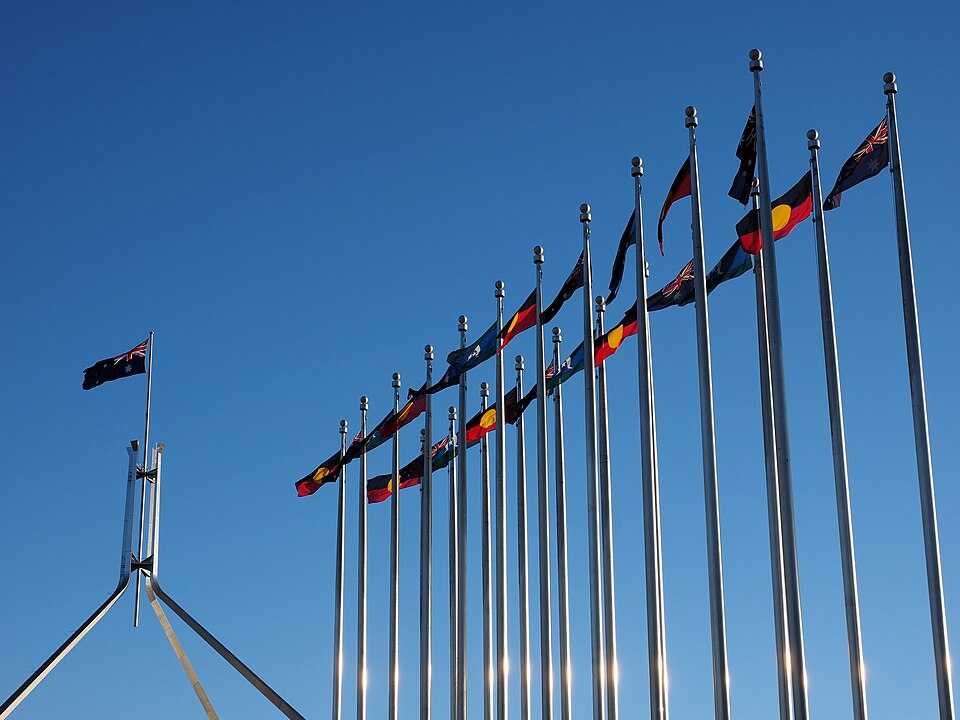In the first episode of the Indo-Pacific Briefing Series, Professor Hugh White presents compelling arguments on why AUKUS is ‘likely to fall apart and quite quickly.’ But Australia’s cross-roads moment runs deeper than AUKUS. Watch the video and read the commentary.
The AIIA does not take a position on issues related to international affairs and is committed to encouraging debate and discussion. All views reflected in this series are of the individuals expressing them.
We interviewed Professor Hugh White AO FASSA FAIIA during a production by the Australian Institute of International Affairs, days after the United States launched a review of AUKUS to ensure the defence pact meets “American first criteria.”
White, a former Deputy Secretary for Strategy in Australia’s Department of Defence, confidently told us, “If we don’t commit to go to war alongside the United States in the event of a US-China war over something like Taiwan, then I think we are pretty much certain not to get the submarines…”
Australia expects to receive Virginia-class SSNs (nuclear-powered submarines) from the United States in the “early 2030s.”
White’s prediction seemed to edge closer to reality weeks later when reports came out, at the opportune time of Prime Minister Anthony Albanese’s visit to China, that America had asked Australia and Japan to reveal “how they would act” in a potential US-China war over Taiwan.
The review appears to have taken a carrot-and-stick approach, much of it resting on Australia’s commitment to wage war against China under the wings of the United States.
“The whole logic of America’s point of view of passing us the submarines presupposes that it’s no real loss for the United States for Australia to have some of their Virginia-class submarines because they’d anyway be available to the United States just as they would have been had they been part of the US Navy.”
It is a bitter pill to swallow for Prime Minister Albanese, who struggled to answer a question about Australia’s position on a hypothetical but probable conflict between Taiwan and China.
The Prime Minister employed the customary ambiguous declaration of supporting the One-China policy, which recognises the government of the People’s Republic of China as the “sole legal government of China” but acknowledges—not recognises—China’s position that Taiwan is part of the People’s Republic of China.
Albanese may have missed the memo that China, where he was speaking at the time, has a different understanding of the One-China mantra. China’s “One-China” principle recognises Taiwan as an inalienable part of its territory.
The “One-China” policy or principle is a melee of words prone to mischaracterisation, much to the benefit of China. China has sought global acceptance of its version, the One-China principle. Recently, Kenyan officials—inadvertently or carelessly—said Kenya upholds the One-China policy and on another occasion recognised the ‘One-China’ principle. It is all in the semantics.
But semantics alone cannot help Albanese save the AUKUS deal and maintain its alliance with the US while courting “a very, very powerful” China, as Prof White put it. Why?
“Australia has found itself in a very different position. Instead of being the kind of free-riding, silent partner of an uncontested dominant power, we’ve been a subordinate ally of a power facing an increasingly significant challenge,” White reflected. The challenge is China’s opposition to the US’s efforts to “remain the primary power in East Asia.”
China is Australia’s largest two-way trading partner. The largest share of Australia’s exports in 2024 went to China, totalling $196 billion. It is a headache for Australia to choose between supporting the US in preserving its position in Asia and maintaining trade relations with China. But White prescribes a dose.
“I think the costs and risks to us of supporting the United States in trying to maintain its position in East Asia in the face of China’s challenge…exceed our interests and therefore on balance our interests will be better served by not supporting the United States in that kind of situation, not going to war with them over Taiwan for example…”
That’s a hard reality. It is a decision Australia cannot make now because it will sink the AUKUS submarines. But as Prof White points out, there are already signs of leaks.
“There are going to be two ifs…The first is whether or not Australia has prepared to send any submarines in America for us to go to war with them against China. The second is whether or not the United States’ own submarine industry can start building enough submarines so that they have enough submarines to spare to pass them to Australia.”
The second reason is a reality. US shipyards are building 1.3 submarines a year. So, “unless the build rate in the US yards could go to two submarines a year, there’d be no chance of them giving us any.”
For a strategist who spells doom for the Australia-America alliance, he strikes an optimistic tone when offering a remedy for Australia’s stalemate, “Realism on the one hand and imagination on the other.”
Member of the South Australian Chapter of the Australian Institute of International Affairs




